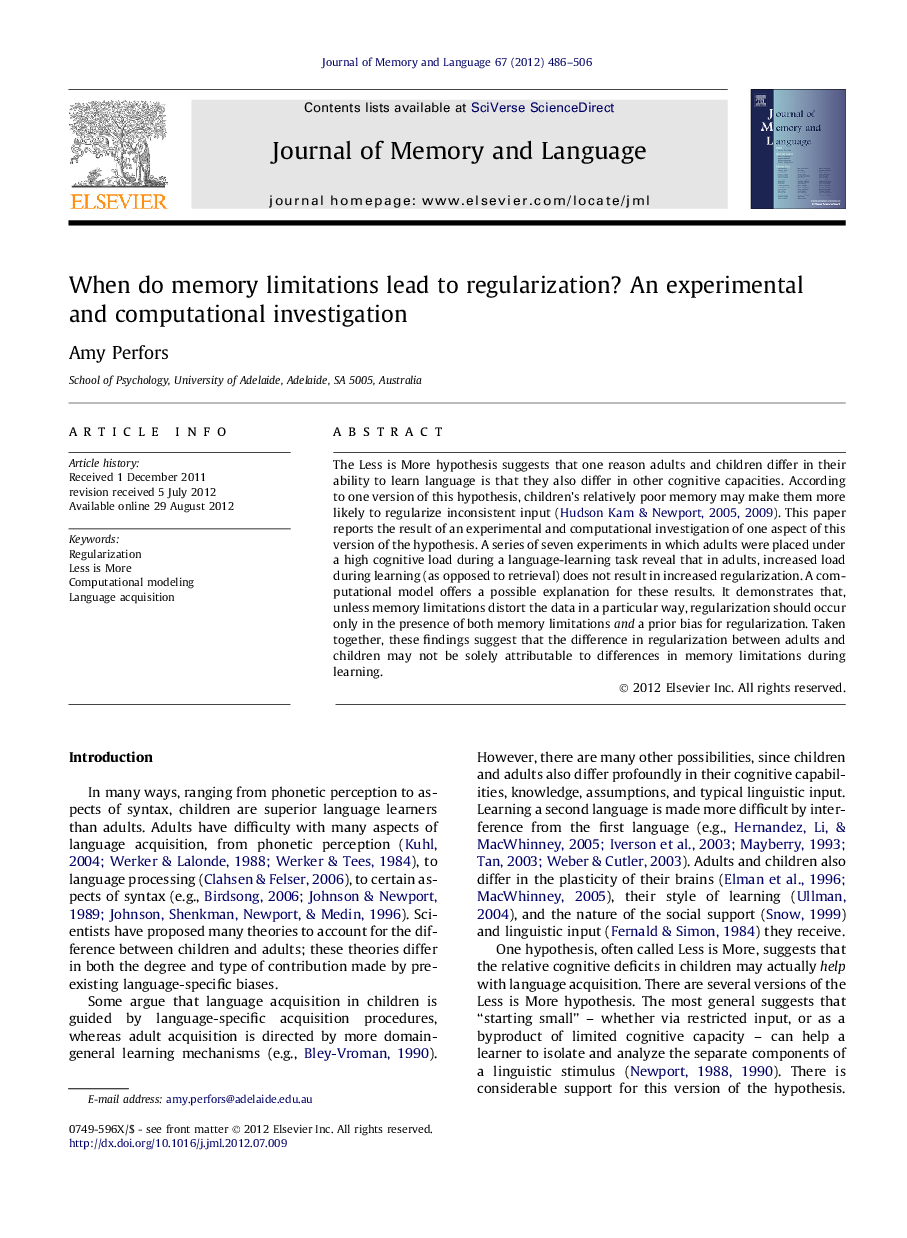| کد مقاله | کد نشریه | سال انتشار | مقاله انگلیسی | نسخه تمام متن |
|---|---|---|---|---|
| 931978 | 923054 | 2012 | 21 صفحه PDF | دانلود رایگان |

The Less is More hypothesis suggests that one reason adults and children differ in their ability to learn language is that they also differ in other cognitive capacities. According to one version of this hypothesis, children’s relatively poor memory may make them more likely to regularize inconsistent input (Hudson Kam and Newport, 2005 and Hudson Kam and Newport, 2009). This paper reports the result of an experimental and computational investigation of one aspect of this version of the hypothesis. A series of seven experiments in which adults were placed under a high cognitive load during a language-learning task reveal that in adults, increased load during learning (as opposed to retrieval) does not result in increased regularization. A computational model offers a possible explanation for these results. It demonstrates that, unless memory limitations distort the data in a particular way, regularization should occur only in the presence of both memory limitations and a prior bias for regularization. Taken together, these findings suggest that the difference in regularization between adults and children may not be solely attributable to differences in memory limitations during learning.
► I investigate a version of the Less is More hypothesis.
► It suggests that children regularize more than adults due to memory constraints.
► Experiments show that adults under memory load do not regularize more.
► These experiments were explained with a computational model.
► It says that memory limits during encoding should not cause regularization without a prior bias.
Journal: Journal of Memory and Language - Volume 67, Issue 4, November 2012, Pages 486–506